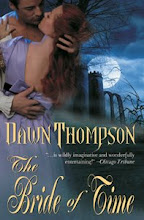
Many of us Infinite Worlds of Fantasy Authors confess to writing some “dark" fiction. A fewer number cops to out and out horror. I am one such author, but I’m not so certain anymore. I’ve been wrestling with this question: What makes a work “dark” as opposed to outright horror?
This question was inspired by a call for submission I saw somewhere that alluded to a desire for horror, dark fiction was insufficient. “Hmm.” I thought when I saw it. So I went to the boards and loops in search of an answer.
Some defined it as witches, goblins, and ghouls, sometimes werewolves and vampires, always a supernatural evil that looms and adds conflict and suspense to the story. But some of these things have been romanticized, brought firmly into the center, and don’t frighten us as much anymore. And what about Stephen King’s harrowed stories of domestic abuse, his characters that are completely psychotic but frightening because you can imagine them, they’re real, they make you take a second look at your neighbors when you go out to check the mail?
Another definition I got and enjoyed was that horror happens when a story makes you look over your shoulder as you read it. Horror happens when you hesitate to turn off the lights after you’ve read it. Horror makes you avoid mirrors when it’s dark them at night. In essence, stories that feel you with adrenaline and enact a change in your behavior. But I’ve read a dark story, definitely not found in the horror section, with an intense description of budding flowers that ensures I will never have houseplants.
At the end of the day, I think we can all agree that great fiction is great fiction regardless of the name. We would probably all agree, also, that it’s next to impossible to write a great tale that doesn’t cross a genre or two. But we’d love your opinion anyway! Where do you draw the line?
Next week: Urban Fantasy!
Grayson Reyes-Cole
http://www.graysonreyescole.com/
Infinite Worlds of Fantasy Author
Experience Bright Star
This question was inspired by a call for submission I saw somewhere that alluded to a desire for horror, dark fiction was insufficient. “Hmm.” I thought when I saw it. So I went to the boards and loops in search of an answer.
Some defined it as witches, goblins, and ghouls, sometimes werewolves and vampires, always a supernatural evil that looms and adds conflict and suspense to the story. But some of these things have been romanticized, brought firmly into the center, and don’t frighten us as much anymore. And what about Stephen King’s harrowed stories of domestic abuse, his characters that are completely psychotic but frightening because you can imagine them, they’re real, they make you take a second look at your neighbors when you go out to check the mail?
Another definition I got and enjoyed was that horror happens when a story makes you look over your shoulder as you read it. Horror happens when you hesitate to turn off the lights after you’ve read it. Horror makes you avoid mirrors when it’s dark them at night. In essence, stories that feel you with adrenaline and enact a change in your behavior. But I’ve read a dark story, definitely not found in the horror section, with an intense description of budding flowers that ensures I will never have houseplants.
At the end of the day, I think we can all agree that great fiction is great fiction regardless of the name. We would probably all agree, also, that it’s next to impossible to write a great tale that doesn’t cross a genre or two. But we’d love your opinion anyway! Where do you draw the line?
Next week: Urban Fantasy!
Grayson Reyes-Cole
http://www.graysonreyescole.com/
Infinite Worlds of Fantasy Author
Experience Bright Star
Picture by Kat Haeske


















































No comments:
Post a Comment